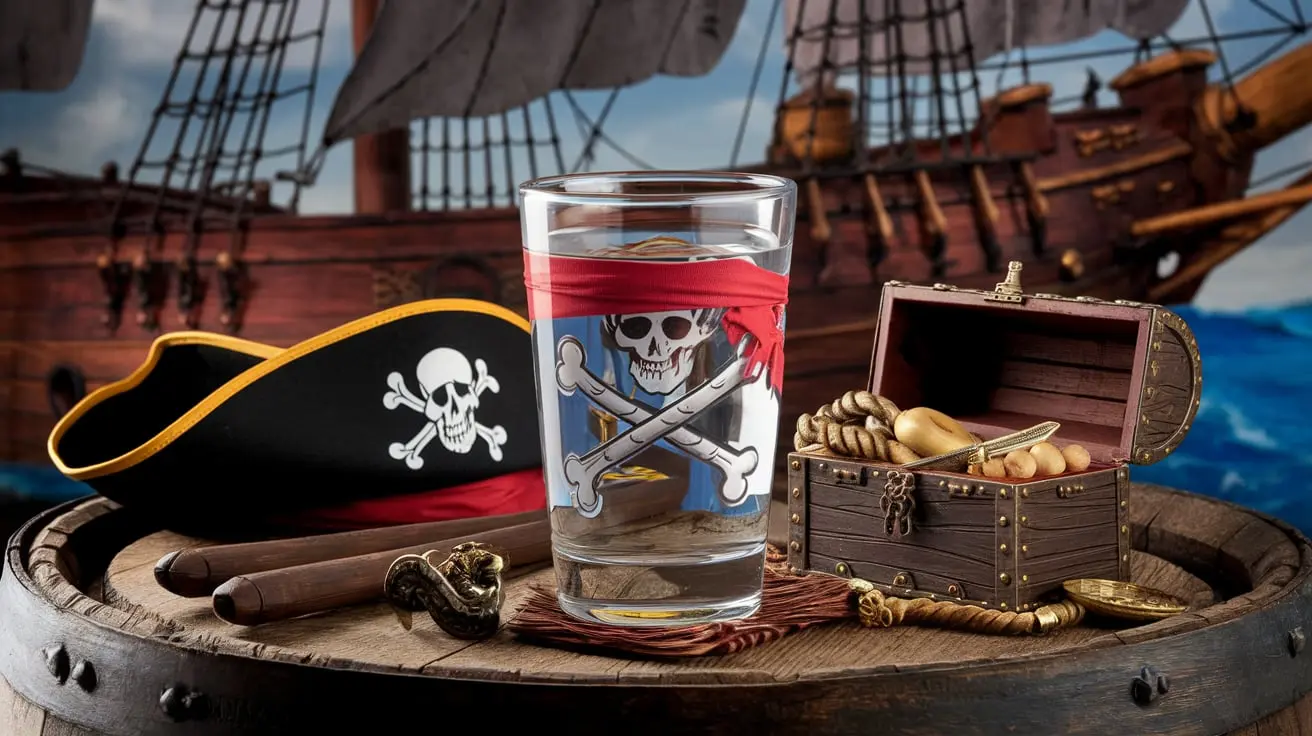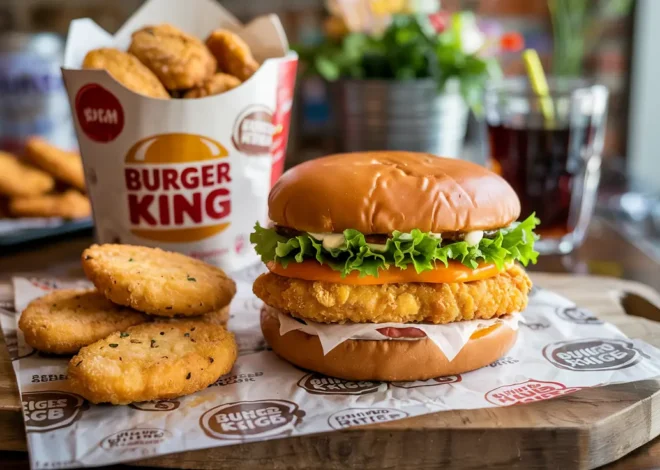
How Healthy is Pirate Water? A Nutritional Look Inside
Pirate Water has become a trendy choice among flavored alcoholic beverages. Its tropical flavors and fun branding make it an appealing option for casual drinkers, especially at social gatherings. But how healthy is it really? This article provides a nutritional breakdown of Pirate Water, detailing its ingredients, calorie count, and what consumers need to know when considering it as a drink option.
Understanding Pirate Water’s Ingredients
Pirate Water combines alcohol with flavors meant to evoke tropical, fruity sensations. It often includes artificial flavors and sweeteners to intensify its taste profile. While these ingredients contribute to the drink’s flavor, they also impact its nutritional profile in ways that may not align with everyone’s health goals.
Pirate Water contains the following components:
- Alcohol: As with any alcoholic beverage, Pirate Water’s alcohol content affects calorie intake and metabolism.
- Sugars and Sweeteners: Sugar provides sweetness but adds empty calories.
- Artificial Flavors and Colors: These are common in flavored alcoholic beverages to create a specific taste and visual appeal. However, artificial ingredients can sometimes trigger sensitivities in some individuals.
- Carbonation: The fizzy texture adds a fun aspect to the drink, though it can contribute to bloating and gas.
Understanding these ingredients helps in determining whether Pirate Water fits your dietary and health priorities.
Caloric Content: What to Expect
Each can of Pirate Water typically ranges from 200 to 300 calories. The calories primarily come from sugars and alcohol, with some variation based on specific flavors. High-calorie counts in alcoholic beverages often come as a surprise because they don’t provide any nutritional benefits beyond energy, making them “empty calories.”
For comparison:
- A standard glass of wine has about 120-150 calories.
- A light beer generally has 90-110 calories.
By drinking Pirate Water, you’re consuming about double the calories of these options in one can. It’s essential to remember that drinking multiple cans can lead to a quick accumulation of calories, affecting weight and overall health if consumed frequently.
Sugars and Carbohydrates
Pirate Water has a high sugar content, with each can containing anywhere from 20 to 30 grams of sugar. This amount is significant when considering the daily sugar intake recommendations:
- The American Heart Association (AHA) advises a limit of 25 grams of sugar per day for women.
- For men, the limit is around 36 grams per day.
Drinking just one can of Pirate Water can meet or exceed these daily recommendations. This excess sugar can increase the risk of insulin resistance, weight gain, and other health concerns.
Carbohydrates are also high due to sugar content, ranging from 30-40 grams per can. While carbohydrates provide energy, consuming them in excess, especially in the form of sugars, can lead to health problems.
Alcohol Content and Its Impact on Health
The alcohol content of Pirate Water is typically between 8-10% ABV (alcohol by volume). This makes it stronger than the average beer and comparable to wine, which has an ABV around 12%. The high alcohol content in Pirate Water means that it can affect you faster, especially if consumed quickly or on an empty stomach.
Regularly drinking alcohol in this concentration can impact liver health, increase blood pressure, and contribute to dehydration. Alcohol’s impact on metabolism also means that it’s processed before other nutrients, leading to slower fat burning and possibly weight gain.
The Effect of Artificial Flavors and Additives
To create its distinctive taste, Pirate Water includes artificial flavors and colors. These ingredients can affect those with allergies or sensitivities. Some research suggests that certain artificial additives can lead to mild health issues, such as headaches or gastrointestinal discomfort.
Moreover, while generally recognized as safe by regulatory agencies, artificial additives are still processed by the body differently from natural substances. For those interested in more natural dietary choices, these additives may be a downside.
Pirate Water and Dehydration
Alcohol acts as a diuretic, meaning it increases urine production and leads to dehydration. The sugary content of Pirate Water can exacerbate this effect. Consuming it without hydrating can leave you feeling depleted, especially if it’s consumed on a hot day or during intense activity. Dehydration can lead to symptoms like headaches, dizziness, and fatigue, so it’s vital to drink water alongside alcoholic beverages.
Potential Health Concerns
- Weight Gain: The high calorie and sugar content in Pirate Water can contribute to weight gain, especially if consumed frequently.
- Blood Sugar Spikes: The sugar in Pirate Water can cause a spike in blood sugar, which may not be ideal for people monitoring their sugar intake or those with insulin sensitivity.
- Dehydration and Hangovers: High alcohol and sugar content can intensify dehydration, increasing the risk of hangovers.
- Allergic Reactions: Some individuals may react to artificial flavors, colors, or sweeteners.
Comparing Pirate Water to Other Alcoholic Options
Pirate Water isn’t unique in its nutritional profile; many ready-to-drink alcoholic beverages are similarly high in sugar, calories, and additives. Here’s a comparison of Pirate Water with other popular drink types:
| Drink Type | Calorie Range (per serving) | Sugar Content | Alcohol Content |
|---|---|---|---|
| Pirate Water | 200-300 | High | 8-10% ABV |
| Light Beer | 90-110 | Low | 4-5% ABV |
| Regular Beer | 150-200 | Moderate | 5-7% ABV |
| Wine | 120-150 | Low | 12-15% ABV |
| Hard Seltzer | 100 | Low | 5% ABV |
| Regular Mixed Drinks | 150-200 | Moderate | Varies |
From the table, it’s evident that Pirate Water ranks high in calories and sugar, making it less ideal for those who want a lower-calorie or low-sugar beverage.
Tips for Healthier Drinking
If you enjoy Pirate Water but want to minimize its health impact, here are some tips:
- Moderation: Limit yourself to one can and alternate with non-alcoholic drinks to reduce calorie intake.
- Hydrate: Drink a glass of water between each can to stay hydrated.
- Limit Sugar Intake Elsewhere: If you know you’ll be drinking Pirate Water, minimize sugar intake throughout the day to balance out.
- Opt for Lighter Flavors: Some flavors may have less sugar; opt for these if available.
- Don’t Drink on an Empty Stomach: Eating before drinking can help slow alcohol absorption and reduce the impact on blood sugar.
Final Thoughts
Pirate Water’s flavor and fun appeal make it a popular choice, especially for social gatherings. However, its high calorie, sugar, and alcohol content mean that it’s best enjoyed in moderation. Regularly consuming high-sugar alcoholic drinks can contribute to health issues, so balancing Pirate Water with other lower-calorie or non-alcoholic options is wise.
By understanding the nutritional facts and making mindful choices, you can enjoy drinks like Pirate Water without compromising your health goals.



